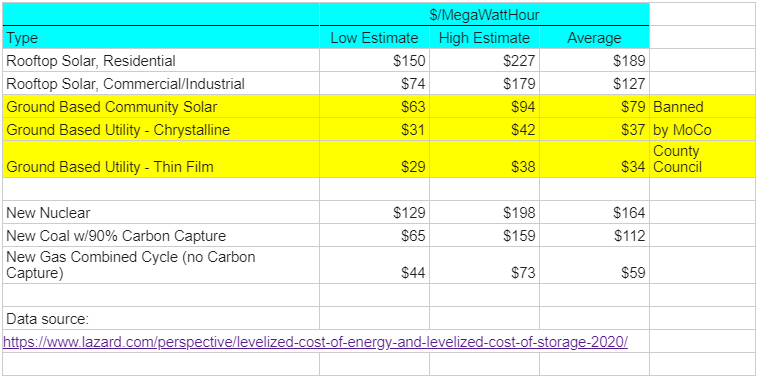By Adam Pagnucco.
Delegate Kumar Barve has sent the county council a letter saying that he is “deeply disturbed” by their actions on a zoning text amendment allowing solar panels in the agricultural reserve. He characterizes two amendments to the measure approved by the council as making solar development in the reserve “essentially impossible.” Finally, he asks the council to withdraw the amended legislation and start over for fear that other counties may try to limit solar energy too.
Let’s remember that Barve is no ordinary delegate. He is the chair of the House Environment and Transportation Committee and a long-time member of House leadership. That makes him one of the most powerful officials in Annapolis, especially on issues within the jurisdiction of his committee (like solar energy). The state government can and does preempt local governments when state officials believe such action is warranted. Let the council beware.
Barve’s letter to the council is reprinted below.
*****
February 7, 2021
Re: Functional 98% Ban of Affordable Solar Energy in Montgomery County
To the President and Members of the Montgomery County Council:
Living in Montgomery County all my life, I recognize the extraordinary work our County Council is capable of doing including your efforts now during the COVID-19 pandemic. Indeed, the Montgomery County Council is recognized for its tremendous past contributions in dealing with an equally dangerous threat to our livelihoods and health: global warming.
I write now because, as a state legislative leader on environmental issues, I am deeply disturbed by the Council’s recent actions impacting the development of solar energy. Specifically, the Council’s decision to restrict solar building on Class 2 soil in the Agricultural Reserve and to impose Conditional Use review to the solar Zoning Text Amendment have made the development of community solar essentially impossible.
Look to the immediate and predictably negative response of solar developers to this action – including businesses in our own county – which make clear that those restrictive conditions effectively shut down any possibility of building solar projects on open land in the Agricultural Reserve.
To fully understand the economic impact of your potential action, realize that energy generated from solar panels placed in open fields (terrestrial) are the only truly affordable source of renewable energy. In fact, a recent analysis by the firm Lazard Ltd. shows that based on price, only terrestrial-based solar panels beats the cost of fossil fuel generation. Rooftop solar can be 2 ½ to 5 times more expensive than terrestrial solar.
The other negative impact of this proposed amendment would be to significantly reduce capacity for small-scale solar projects under the Legislature’s Community Solar program. These are the projects that give low- and middle-class families affordable access to clean energy.
Further, from my statewide perspective, I am seriously concerned that should the currently amended zoning bill pass, the precedent set by our County in taking such a regressive step will have negative repercussions on clean-energy development/equity in the future, across Maryland and the region. Indeed, if a local government of Montgomery County’s stature and progressive reputation can turn its back on affordable community solar, other Maryland counties might likely follow suit.
I respectfully ask the Council to withdraw what has become a potentially harmful bill. Instead, I ask you to compromise by leveraging our progressive knowledge base and practical experience. In this way, the County can create a synergistic solution that advances clean energy, protects agriculture, creates jobs and improves our overall wellbeing. In short, the Council can provide the type of creative solution that we have come to expect from Maryland’s leading jurisdiction.
Sincerely,
Kumar Barve
Note: Along with his letter, Barve supplied the following data table from Lazard Ltd., an international asset management firm, showing that ground-based solar energy is more price competitive with nuclear and fossil energy than rooftop solar.

